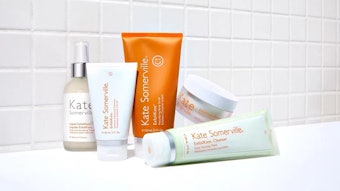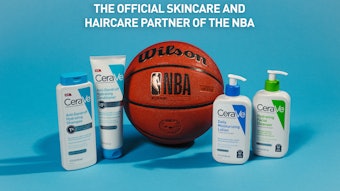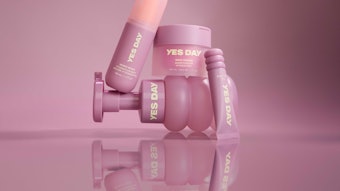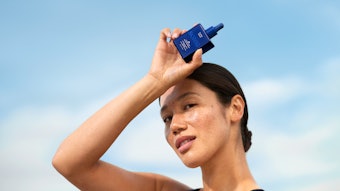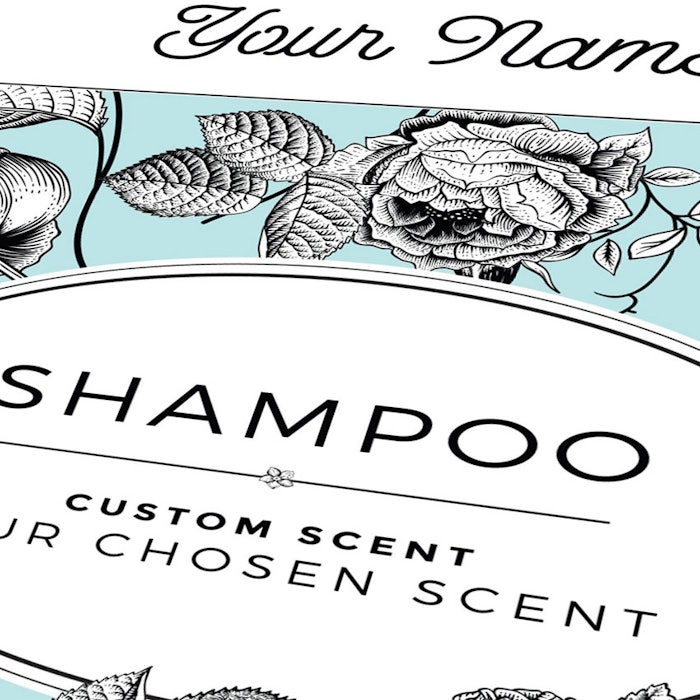
Like a well-fitting suit, beauty products can be tailored to meet an individual’s exact needs. But the latest trend is going beyond categorical personalization. Some brands are tailoring their products to meet consumers’ needs at the molecular level.
Brands like Home DNA and Geneu supply consumers with DNA tests for a better understanding of the consumer’s skin care needs even before issues occur—an individual doesn’t have to show signs of aging for the test to recognize a predisposition to wrinkles or collagen loss.
If a user’s genes indicate genetic variations that compromise skin’s elasticity, the report will recommend using products with beta glucan, vitamin E and other ingredients to promote firming and reduce elasticity breakdown.
“Our recommendations point consumers in the right direction because there are so many skin care options that the choices often become overwhelming,” said Connie Hallquist, president and CEO of DNA Diagnostics Center, producers of HomeDNA Skin Care. “Finally, consumers have tailored recommendations to help achieve better skin care results.”
How It Works
Once users have sent in their DNA samples, a skin care analysis and report is generated based on key genetic markers. These findings are translated into a report that is divided into seven categories:
Fine Lines and Wrinkles: Glucose-related fine lines and wrinkles, including anti-wrinkle promotion and wrinkle formation factors.
Sun Protection: Gene variations that can weaken the skin’s natural protection against the sun.
Skin Sensitivity: Four genes that regulate the body’s inflammatory response and one gene related to pollution and fragrance sensitivity.
Skin Elasticity: Quality of collagen structure that supports the skin and tests for collagen depreciation.
Pigmentation: Two genes can affect an individual’s tanning response, including a predisposition to burning and sun spots, as well as the “freckle factor” gene that influences the production of melanin.
Collagen Quality: Four genes are tested for collagen fiber formation, collagen repair (including skin barrier protection), and collagen breakdown, which determines how well a person’s body forms and remodels collagen.
Skin Antioxidants: Checks five genes associated with protecting the skin against free-radical damage, including free-radical scavengers that protect the skin from oxidative damage as well as pollution protection.
DNA tests may urge users to invest in products and services designed to delay or even prevent these issues from arising.
In addition to assessing an individual’s risk factor based on their gene profile, the analysis also provides recommendations for topical, supplemental and professional treatments if his or her score indicated non-ideal findings.
“Over the last five years, personal genetic testing has moved to a point where it can help consumers make meaningful choices in how they care for themselves,” said Hallquist. “We recognized the opportunity to offer a skin-based DNA test that provides actionable recommendations to improve personal skin care; it is predicated on academic research that specific genes can influence skin health.”
The Future is DNA
What does this mean for marketers, and, ultimately, the consumer? Because the test provides insight into an individuals’ predisposition to certain skin concerns, DNA tests may urge users to invest in products and services designed to delay or even prevent these issues from arising. If a woman typically begins using an anti-aging skin care regimen at age 40, she may begin a future-proofing regimen at age 20 based on her results.
Skin-based DNA tests could also mean an increase in sun protection usage based on an individual’s own ability, or lack thereof, to protect itself from free radicals.
For example, if a user’s genes indicate genetic variations that compromise body’s ability to produce essential antioxidants that scavenge skin-damaging free radicals, the report will recommend using products with squalene, vitamin E and other ingredients to protect the skin from free-radical damage. Additionally, the report may recommend mesotherapy and antioxidant facials, as well as CoQ10 supplements, among others, to protect the body at the cellular level.
“It started with the science. We identified studies for genes that influence different areas of skin health, [such as] sensitivity, wrinkling, pigmentation, and identified ingredients—supplements and serums with key ingredients—found in academic research to help protect the skin in the aforementioned categories,” said Hallquist. “These two areas come together, genes and treatments, via an algorithm that provides unique skin care recommendations based on a person’s own genes.”

